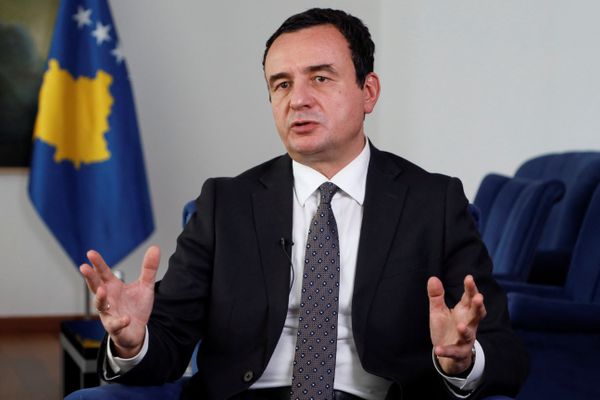Prime Minister Kurti’s decision to send the police to quell the ethnic Serb demonstrations in three municipalities in the north of Kosovo—Zvecan, Leposavic, and Zubin Potok—was ill-advised at best for several reasons.
First, although the municipalities are a part of Kosovo and the mayors have the technical right to enter municipal buildings, doing so at this juncture when tensions with the north are so high is a provocative step that was neither necessary nor wise.
Second, sending the police force to quell the demonstrations was a completely unjustified measure, knowing that the mere presence of Kosovo’s police could instigate violent resistance, and Kurti should have known that the ethnic Serbs in the north will not be intimidated, especially given their dominance in that area.
Third, although technically the election was free and fair, the fact that the vast majority of Serbs—95 percent—announced in advance that they would boycott the election means the mayors were elected by a meager 3.7 percent, which by any standards is not legitimate and inconsistent with democracy, where a majority rules.
Having cast Kosovo’s lot with the EU and the US, for Kurti to send the police to the predominantly-Serb area in the north, without coordination with KFOR, has severely undermined his position with both the EU and the United States. Secretary of State Antony Blinken was very clear when he said “We strongly condemn the actions by the Government of Kosovo that are escalating tensions in the north and increasing instability. We call on Prime Minister Kurti to immediately halt these violent measures and refocus on the EU-facilitated Dialogue.”
Kurti’s actions simply played into Serbian President Vucic’s hand, who promptly raised the readiness of his armed forces and dispatched them close to the border with Kosovo. This has further heightened the tension and further poisoned the bilateral relations between Kosovo and Serbia.
Kurti’s action was exactly what Russia’s President Putin was wishing for. Putin was determined and did his best to destabilize the Balkans, and Kurti’s actions simply fulfilled Putin’s wishes, especially when the EU and the United States were doing everything they could to stabilize the region, particularly as the war in Ukraine continues to rage.
To be sure, this election and Kurti’s decision to send the police and allow the Albanian mayors to enter municipal buildings, has not and will not contribute to a lasting solution for the municipalities involved. Kurti should heed the EU’s and the US’ advice: withdraw the police, make every effort to calm the atmosphere, and create the environment necessary to resume the negotiations over the association of Serb-majority municipalities.
____________
Dr. Alon Ben-Meir is a regular contributor. He is a retired professor of international relations at the Center for Global Affairs at NYU. He teaches courses on international negotiation and Middle Eastern studies. His views do not necessarily reflect those of Taarifa.



















